在6月15日推出500億美元征稅清單之后,18日,美國(guó)再次發(fā)表聲明,威脅將對(duì)華制定2000億美元征稅清單,投下一顆貿(mào)易“重磅炸彈”。
美國(guó)此舉背離雙方多次磋商共識(shí),傷害中美兩國(guó)人民和企業(yè)利益,不僅激起了中國(guó)強(qiáng)烈反擊,也在美國(guó)政商學(xué)界引發(fā)層層反對(duì)聲浪。
專家學(xué)者、企業(yè)高管紛紛對(duì)特朗普的貿(mào)易政策表示擔(dān)憂,跟特朗普“擺事實(shí),講道理”。
01
“關(guān)稅猛藥”病不能除,反奪性命
美國(guó)前商務(wù)部次長(zhǎng)、奧巴馬政府貿(mào)易官員斯蒂芬·賽利格(Stefan M. Selig)在CNBC網(wǎng)站發(fā)表文章,認(rèn)為關(guān)稅這劑猛藥不能治病,反而會(huì)要命。
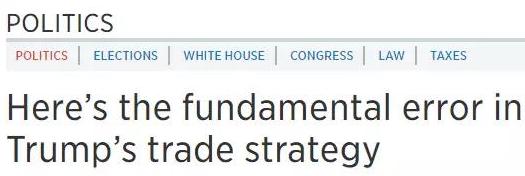
論特朗普貿(mào)易政策的根本性錯(cuò)誤
其中,賽利格引用了一個(gè)十分有趣的比喻:特朗普政府和其支持者都會(huì)把特朗普的貿(mào)易政策比喻為“抗生素”(antibiotic):
They present Trump's trade agenda as an antibiotic. The side-effects may be unpleasant, but the infection will likely be eliminated.
他們將特朗普的貿(mào)易政策比作抗生素,期間雖然可能會(huì)有些令人不適的副作用,但最終仍會(huì)藥到病除。
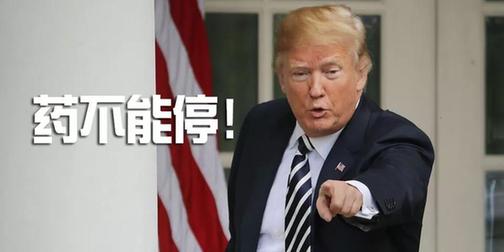
然而,賽利格表示,能說(shuō)這話的人,很明顯是沒(méi)看到這“副作用”有多明顯,才站著說(shuō)話不腰疼。
雙語(yǔ)君(微信ID:Chinadaily_Mobile)帶你一起看看都有哪些“副作用”:
? 經(jīng)濟(jì)不穩(wěn)定阻擋投資、影響全球經(jīng)濟(jì)發(fā)展
The first quarter of 2018 saw the VIX index, which measures volatility in the equity markets, increase by an astonishing 81 percent, where $2 trillion of U.S. market cap evaporated over the course of one ten-day period. Markets have added and shed as much as 2 percent of aggregate market value in multiple trading days.
先來(lái)看看VIX指數(shù),這是衡量股票市場(chǎng)波動(dòng)的一種指數(shù),2018第一季度,VIX指數(shù)飆升81%,令人震驚,2萬(wàn)億美國(guó)市場(chǎng)資金在10天之內(nèi)憑空蒸發(fā)。在多個(gè)交易日內(nèi),股市跌跌漲漲,價(jià)值達(dá)到總市值的2%。
Meanwhile, both the International Monetary Fund (IMF) and the Organization for Economic Cooperation and Development (OECD) warned that a brewing global trade war could weaken the synchronous global growth we are experiencing.
與此同時(shí),國(guó)際貨幣基金組織和經(jīng)濟(jì)合作與發(fā)展組織都警告稱:這場(chǎng)發(fā)酵中的貿(mào)易戰(zhàn)將削弱當(dāng)前的全球同步增長(zhǎng)。
This proves what dealmakers have always known: that volatility and uncertainty are the enemies of capital formation, and a trade agenda that engenders such volatility and uncertainty will curtail or at the very least postpone investment.
這證明了交易者一直都懂的一個(gè)規(guī)律:波動(dòng)性和不確定性不利于資本形成。所以,一個(gè)引發(fā)波動(dòng)和不確定性的貿(mào)易政策,會(huì)縮減或至少延緩?fù)顿Y。
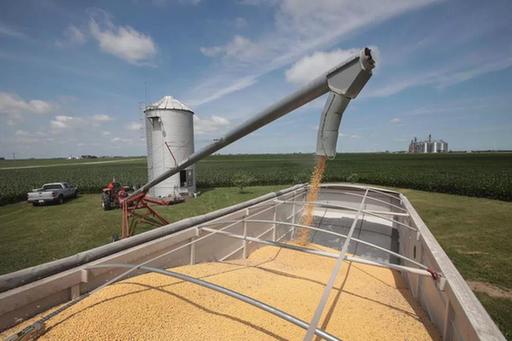
? 制造業(yè)將丟7萬(wàn)飯碗
Up to 70,000 net jobs in manufacturing are projected to be lost due to steel and aluminum tariffs. And by jeopardizing access to global markets, the ongoing brinksmanship will directly undercut American manufacturing by increasing the price of the foreign inputs, including steel inputs, that our factories rely on to create internationally competitive finished goods, while threatening our status as the world's leading exporter of services and capital goods.
據(jù)預(yù)計(jì),針對(duì)鋼鐵和鋁的關(guān)稅政策,將使美國(guó)失去多達(dá)7萬(wàn)個(gè)制造業(yè)凈工作。此外,目前施行中的邊緣政策讓美國(guó)進(jìn)入國(guó)際市場(chǎng)越來(lái)越難,這直接削弱了美國(guó)的制造業(yè),因?yàn)槲覀円恢币蕾囦撹F來(lái)生產(chǎn)具有國(guó)際競(jìng)爭(zhēng)力的成品,而外國(guó)輸入的產(chǎn)品,包括鋼鐵的價(jià)格又上漲了。這樣一來(lái),美國(guó)作為世界領(lǐng)先的服務(wù)與資本貨物出口大國(guó)的地位也岌岌可危。
The forgotten Americans President Trump pledged to pay attention to—notably farmers and manufacturing workers—are precisely the people who will be hurt the most.
特朗普總統(tǒng)曾經(jīng)承諾會(huì)關(guān)注那些被遺忘美國(guó)人,尤其是農(nóng)民和制造業(yè)工人,如今,這些人恰恰成為了損失最為慘重的一群人。
文章稱,這些都反應(yīng)了美國(guó)貿(mào)易政策的根本性錯(cuò)誤:他只著眼關(guān)稅卻忽視全球貿(mào)易規(guī)則。
This ignores the fact that these trade deficits are not the direct result of trade policy, but of the dollar serving as the global currency of choice, the impact of countries' savings and investment rates, and our reliance on foreign capital to make up the difference between what we save and what we spend.
他忽視了貿(mào)易逆差不是貿(mào)易政策的直接原因,而是美元作為全球貨幣選擇,美國(guó)國(guó)內(nèi)存款和投資率的影響,以及美國(guó)用外部投資來(lái)平衡支出和存款所產(chǎn)生的依賴。
最后,賽利格表示,特朗普的貿(mào)易政策真是應(yīng)了句老話:
If the disease doesn't kill you, the cure surely will.
如果疾病沒(méi)能要了你的命,那你吃的藥鐵定會(huì)。
02
自由貿(mào)易才是最優(yōu)解
美國(guó)喬治梅森大學(xué)莫卡特斯中心高級(jí)研究員維羅妮卡·德·魯吉(Veronique de Rugy)在《紐約時(shí)報(bào)》發(fā)表的文章更是直接指出,降關(guān)稅才是明智之舉:

為什么美國(guó)應(yīng)該降下所有關(guān)稅
特朗普的“關(guān)稅猛藥”不止針對(duì)中國(guó),也針對(duì)了不少其他國(guó)家,其中就包括美國(guó)親密鄰居兼好友加拿大。
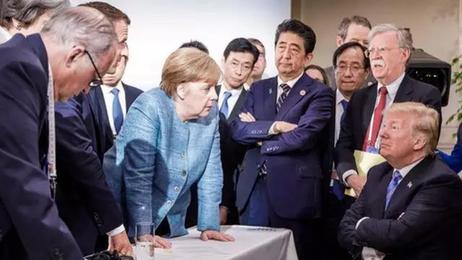
文章表示,美國(guó)在關(guān)稅上的“漫無(wú)目的”和“毫無(wú)意義”的無(wú)理取鬧應(yīng)該停止:
The United States should stop the scattershot, pointless nonsense on tariffs and go the other way, and hard: It should drop all tariffs, even if the rest of the world doesn’t follow.
美國(guó)在關(guān)稅問(wèn)題上漫無(wú)目的、毫無(wú)意義的無(wú)理取鬧該停止了,它應(yīng)該堅(jiān)決地走另一條路:降低所有的關(guān)稅,即便其他國(guó)家沒(méi)有采取相同措施,也應(yīng)如此。
為了講明白自由貿(mào)易的重要性,這位高級(jí)研究員搬出了亞當(dāng)·斯密等經(jīng)濟(jì)學(xué)家的理論……
Economists since Adam Smith have understood that free trade is the best policy. Studies show that countries with freer trade have both higher per-capita incomes and faster rates of productivity growth.
亞當(dāng)·斯密以來(lái)的經(jīng)濟(jì)學(xué)家都認(rèn)為自由貿(mào)易是最好的政策。有研究表明,貿(mào)易更自由的國(guó)家,人均收入更高,勞動(dòng)生產(chǎn)率增長(zhǎng)更快。
Economists have also long understood that barriers to trade, while pitched as a way to help domestic workers, always heavily penalize domestic consumers.
經(jīng)濟(jì)學(xué)家們也早就知道,貿(mào)易發(fā)展的障礙,即關(guān)稅,其初衷是幫助國(guó)內(nèi)工人,卻總會(huì)嚴(yán)重?fù)p害國(guó)內(nèi)消費(fèi)者的利益。
這對(duì)特朗普政府來(lái)說(shuō)也是一樣的道理:
The same is true of Mr. Trump’s steel tariffs. Claiming that they protect a vital industry and its 140,000 workers, tariff supporters never mention how much harder they make things for the 6.5 million manufacturing workers in steel-consuming industries. Add to that number all of us who consume goods made of steel, and you get an even larger figure.
所以,特朗普對(duì)鋼征稅也是同樣的道理。關(guān)稅支持者們聲稱政府保護(hù)了一個(gè)重要產(chǎn)業(yè)及其14萬(wàn)工人,卻從不告訴你,那些以鋼鐵為生的產(chǎn)業(yè)的650萬(wàn)制造工人日子有多難過(guò)。對(duì)了,還要加上我們所有購(gòu)買鋼鐵消費(fèi)品的消費(fèi)者,這個(gè)數(shù)值只會(huì)越來(lái)越大。
如果反其道而行之,關(guān)稅將會(huì)抬高成品價(jià)格,對(duì)美國(guó)企業(yè),以及相關(guān)行業(yè)的就業(yè)帶來(lái)沉重打擊。
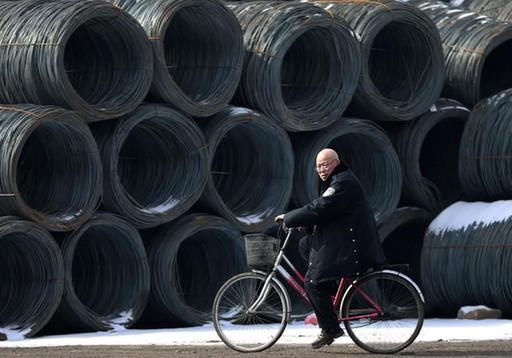
舉個(gè)例子來(lái)看:
Consider a domestic company that imports specialty European steel not produced in the United States. Thanks to the tariffs, this company faces an instant 25 percent price increase. It will shift some of that cost onto its customers, making the final product more costly and thus less competitive at home and globally. Or the company might shift manufacturing abroad to gain access to cheaper materials.
設(shè)想一個(gè)美國(guó)公司主要進(jìn)口歐洲特產(chǎn)的鋼鐵,這種鋼鐵在美國(guó)是沒(méi)有的。由于關(guān)稅增加,這家公司馬上要面臨25%的價(jià)格上調(diào)。這一費(fèi)用的一部分就轉(zhuǎn)移到了消費(fèi)者身上。這樣做的結(jié)果就是,最終的成品價(jià)格更高,無(wú)論是在國(guó)內(nèi)還是國(guó)際市場(chǎng),產(chǎn)品的競(jìng)爭(zhēng)力都有所下降。公司也有可能把生產(chǎn)部門轉(zhuǎn)移到國(guó)外以便獲得更便宜的生產(chǎn)材料。
In both cases, the company probably takes a hit and might even lay off American workers. That’s what happened in the aftermath of President George W. Bush’s 2002 tariffs to the tune of 200,000 jobs lost in steel-consuming industries.
無(wú)論是哪種情況,公司都有可能遭受打擊,甚至進(jìn)行裁員。小布什2002年發(fā)布關(guān)稅政策之后,就出現(xiàn)了這樣的災(zāi)難,鋼鐵消耗行業(yè)失去了高達(dá)20萬(wàn)的工作崗位。
03
引發(fā)美國(guó)商界廣泛擔(dān)憂
除了專家學(xué)者外,特朗普的貿(mào)易政策在商界也引發(fā)了明顯的擔(dān)憂。不少美國(guó)企業(yè)高管就對(duì)其貿(mào)易政策表示批評(píng)。
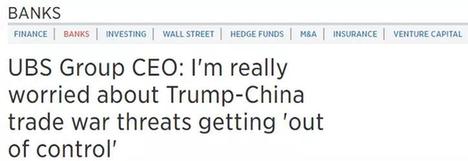
UBS集團(tuán)首席執(zhí)行官:我非常擔(dān)心特朗普的對(duì)華貿(mào)易戰(zhàn)走向失控
他表示,美國(guó)將面臨可能來(lái)自任何一方的貿(mào)易威脅:
"I'm really worried that ... these things are going to get out of control. Somebody is going to announce something that then triggers a more serious issue," Ermotti said, stressing trade risk "could come from any side, Europe, U.S., China; you name it."
“我真的擔(dān)心事情會(huì)走向失控。怕某些人(指美國(guó)政府)再宣布一些政策,引發(fā)更嚴(yán)重的問(wèn)題。”埃爾莫提說(shuō),他強(qiáng)調(diào),貿(mào)易威脅“可能來(lái)自任一方”,“歐洲、美國(guó)、中國(guó),各種”。
摩根大通首席執(zhí)行官杰米·戴蒙在本月月初也曾表示,特朗普的貿(mào)易政策對(duì)經(jīng)濟(jì)復(fù)蘇來(lái)說(shuō)是“藥膏里的一只蒼蠅”。
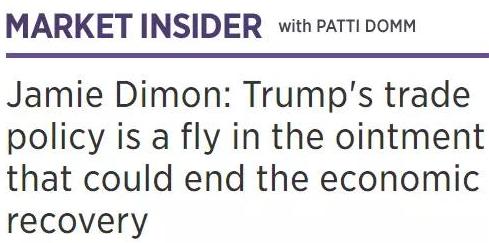
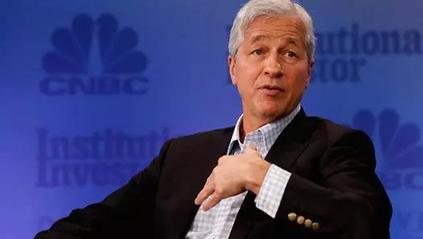
摩根大通首席執(zhí)行官杰米·戴蒙
JPMorgan Chase CEO Jamie Dimon said the economy could continue to expand for one to three years but the Trump administration's trade policies are one of the "flies in the ointment" that could hurt growth.
摩根大通首席執(zhí)行官杰米·戴蒙表示,美國(guó)經(jīng)濟(jì)在接下來(lái)的一年到三年還將繼續(xù)增長(zhǎng),但是,特朗普政府的貿(mào)易政策就像“藥膏里的蒼蠅”,將會(huì)破壞這種增長(zhǎng)趨勢(shì)。
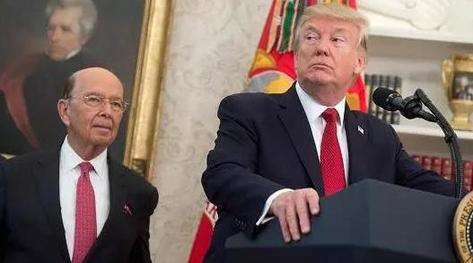
這兩位CEO的擔(dān)憂并非個(gè)例。6月8日,美國(guó)商業(yè)內(nèi)幕新聞網(wǎng)站發(fā)布了一項(xiàng)最新調(diào)查的相關(guān)消息,調(diào)查名稱是“商業(yè)圓桌會(huì)議首席執(zhí)行官經(jīng)濟(jì)展望調(diào)查”(Business Roundtable CEO Economic Outlook survey),這是對(duì)美國(guó)大型公司CEO進(jìn)行的一項(xiàng)季度調(diào)查。
調(diào)查顯示,在回答了貿(mào)易相關(guān)問(wèn)題的CEO中,對(duì)特朗普的貿(mào)易政策表示擔(dān)憂的可謂數(shù)量驚人:
? 95% said "foreign trade retaliation leading to lower US exports" is a moderate or serious risk to the US economy.
95%的CEO表示“外國(guó)貿(mào)易反擊導(dǎo)致美國(guó)出口減少”會(huì)對(duì)美國(guó)經(jīng)濟(jì)構(gòu)成中等或者嚴(yán)重的風(fēng)險(xiǎn)。
? 91% said "higher costs of imports for U.S. consumers" is a risk.
91%的CEO表示“對(duì)美國(guó)消費(fèi)者更高的進(jìn)口商品價(jià)格”會(huì)構(gòu)成一種風(fēng)險(xiǎn)。
? 90% said "higher input costs for U.S. businesses" was a risk.
90%的人說(shuō)“對(duì)于美國(guó)公司來(lái)說(shuō),更高的進(jìn)口費(fèi)用”會(huì)構(gòu)成一種風(fēng)險(xiǎn)。
? 89% said "lower U.S. economic growth" was a risk.
89%的人說(shuō)“美國(guó)經(jīng)濟(jì)增長(zhǎng)放緩”會(huì)構(gòu)成一種風(fēng)險(xiǎn)。
編輯:李雪晴 左卓
實(shí)習(xí)生:李美萱
